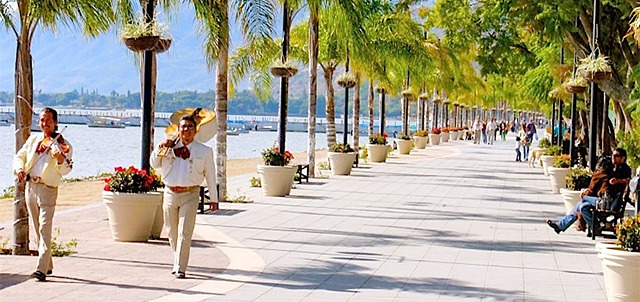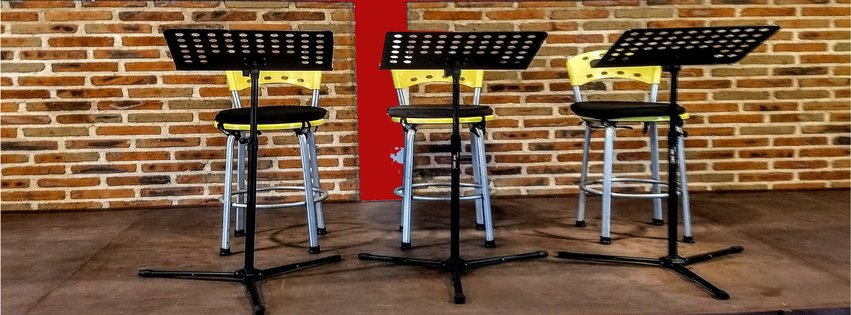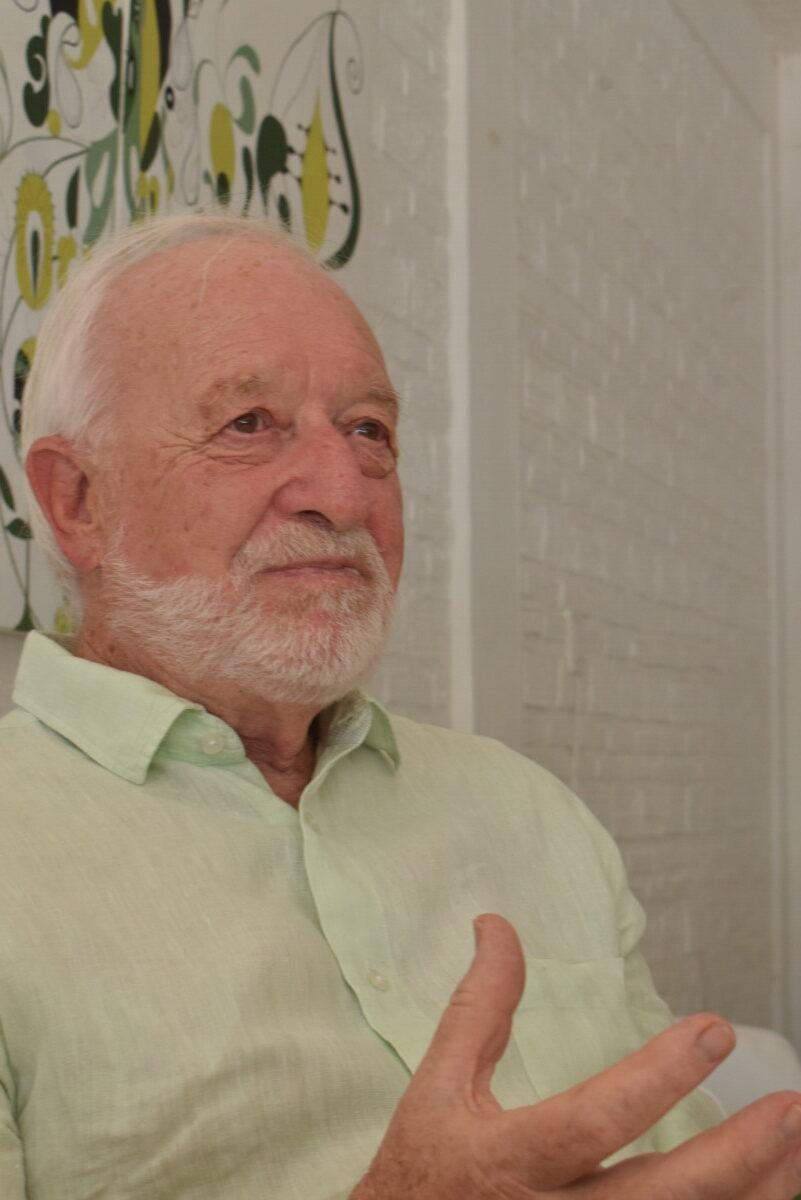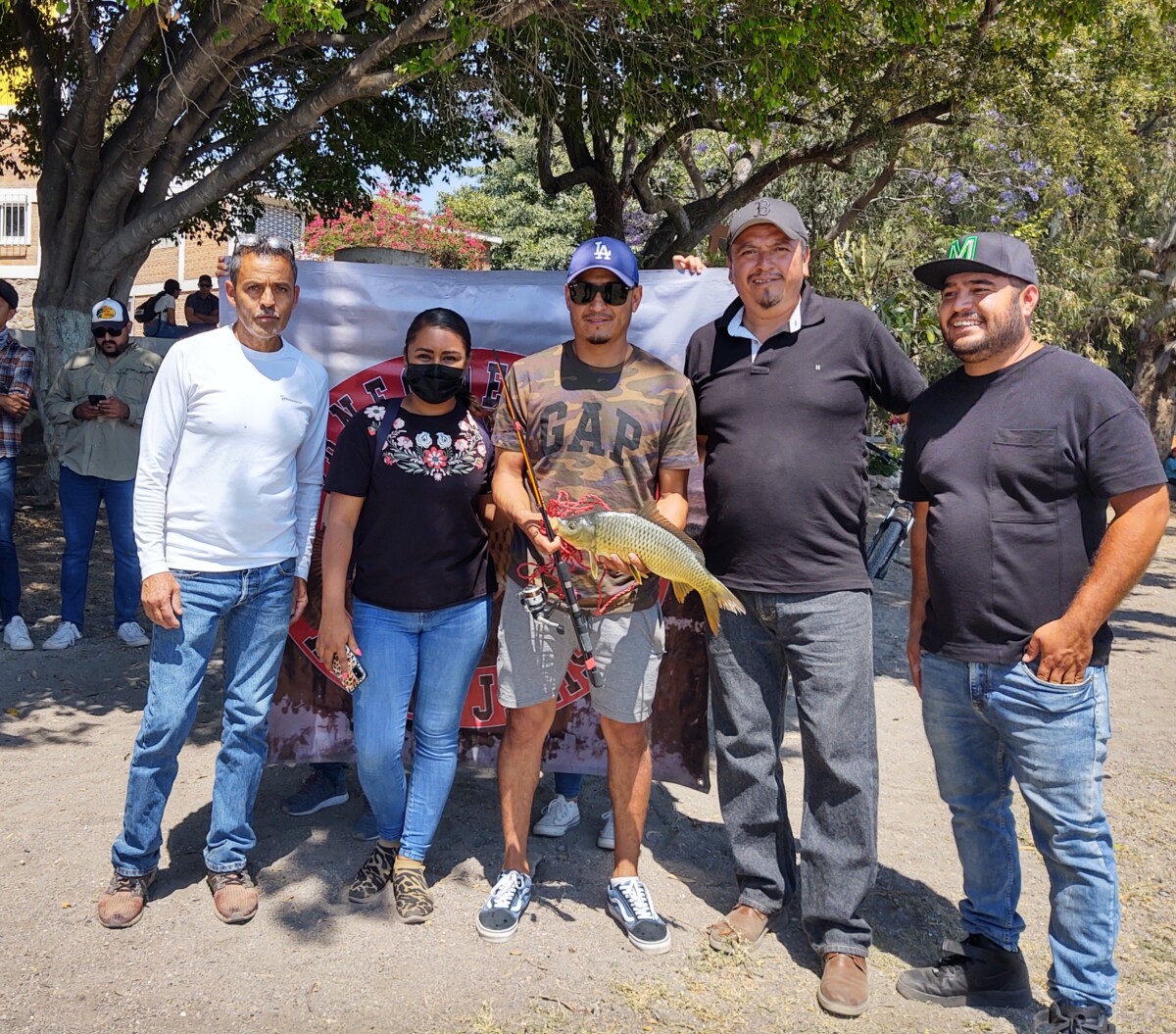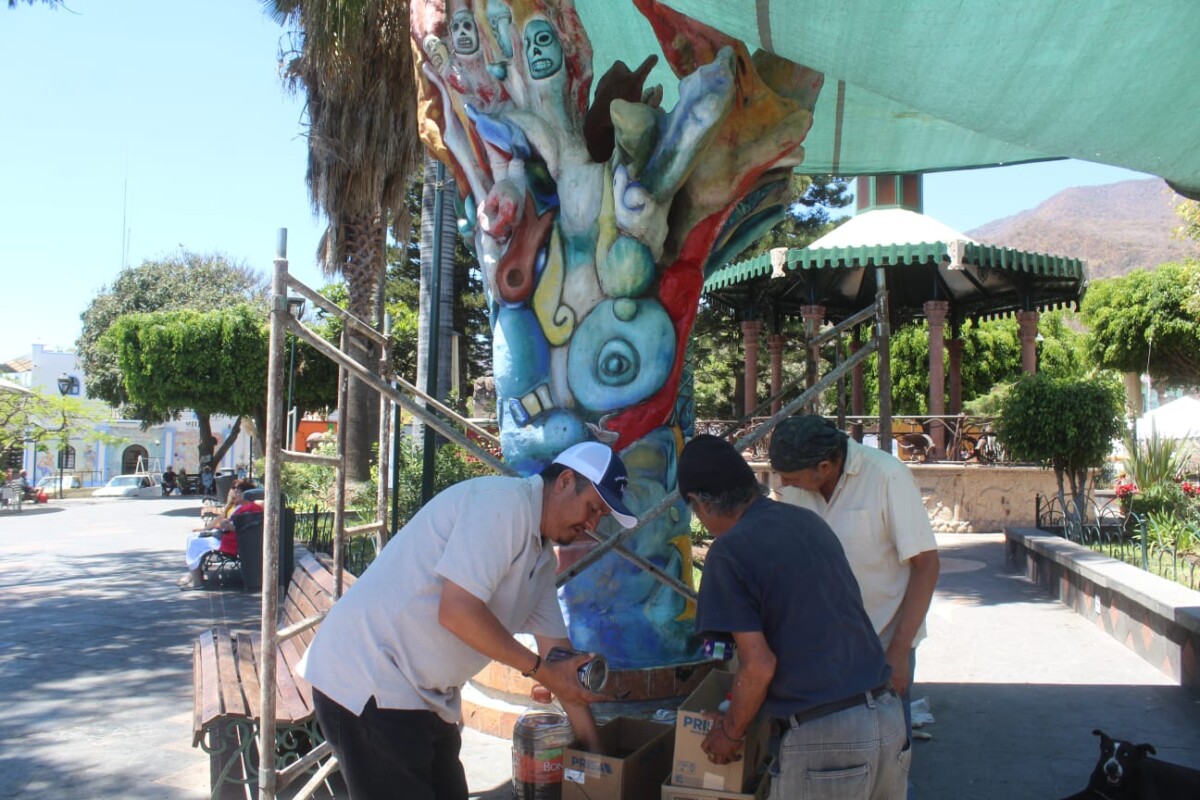en inglés
Chapala registered job losses during March
The lakeside municipality ranked 11th in the state with 96 workers laid off; 56 of them casual and 40 permanent
Editor.– Chapala was placed on the list of the 20 municipalities with the greatest loss of formal employment in Jalisco during the month of March 2022. Formal employment jobs are those with IMSS-insured employees.
According to information from the IMSS database, released by the Institute of Statistical and Geographic Information of the State (IIEG), the lakeside municipality ranked 11th in the state with 96 workers laid off; 56 of them casual and 40 permanent.
The list of municipalities with the greatest loss of employment during March was headed by Tlaquepaque with 238 fewer workers, followed by Tapalpa with 210, and San Gabriel with 192 formal jobs. Of the 125 municipalities, 57 of them, or 45.6 percent, registered job losses, totaling 2,569 dismissals.
In contrast, the three municipalities in the state that registered the most job increases were Zapopan with 4,841, Guadalajara with 1,979 and Tlajomulco de Zúñiga with 1,190 new IMSS-insured employees.
However, Jalisco had led the national jobs creation for the year with 12,154 new formal jobs, ranking first by contributing 18.8% of the total number of new jobs in the country.
Translated by Rebecca Zittle
Chapala group will help keep Holy Week tourists safe from crime and from scalping by vendors
The Chapala boardwalk is a tourist favorite during vacation season. Photo: Internet.
Jazmín Stengel(Chapala).- Chapala’s Operativo Municipal Alegres Vacaciones (City Operation for Happy Holidays) helps keep tourists safe. This year they will also ensure that merchants treat visitors well, said authorities during the presentation of the operation for Holy Week and Easter, April 9 to 24.
Coordinator of Economic Development José Luis Chávez Rivas will coordinate with officials from the Markets and Regulations departments to avoid harassment of tourists and unreasonable cost increases.
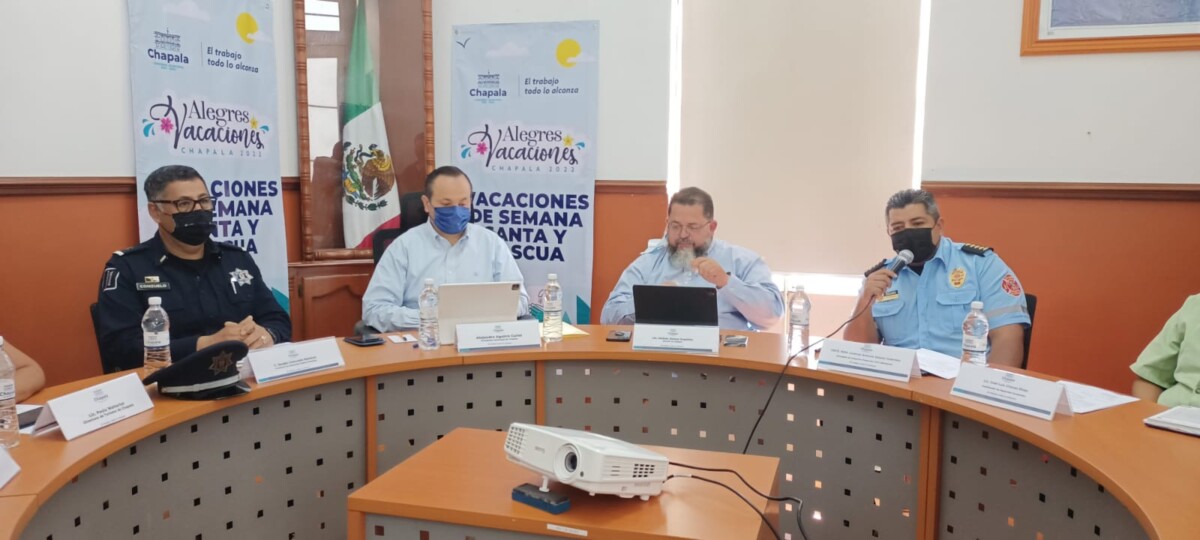
Rehabilitation of the spa inside La Cristianía Park in Chapala for the vacation and summer season. Photo: Courtesy.
An official notice sent to the merchants of the Chapala boardwalk prohibiting bargaining says, “All suppliers must respect the prices, rates, guarantees, quantities, qualities, measures, interests, charges, terms, deadlines, dates, modalities, reservations and other conditions according to which the delivery of the good or provision of service was offered, obliged or agreed with the consumer, and under no circumstances will these goods or services be negotiated to any person. Therefore, they must clearly post their prices of the service they offer to tourists.”
Public Safety, Civil Protection, Firefighters, and Mobility departments will operate on a regular basis. The State Emergency institutions, Harbormaster, Civil Protection of Jalisco, Red Cross, State Police and Roads, will support them.
There will be 99 Public Safety officers, who in turn have 22 vehicles supervising the busiest areas of the municipality 24 hours a day. The boardwalks of Ajijic and the municipal capital will also be guarded. In Chapala, an information module will be installed near the offices of the Municipal Sports Commission on Francisco I. Madero Avenue.
Municipal Mobility will add more people during the season to control the main entrances and exits of the municipality and the borders with Ixtlahuacán de los Membrillos, Jocotepec and Poncitlán.
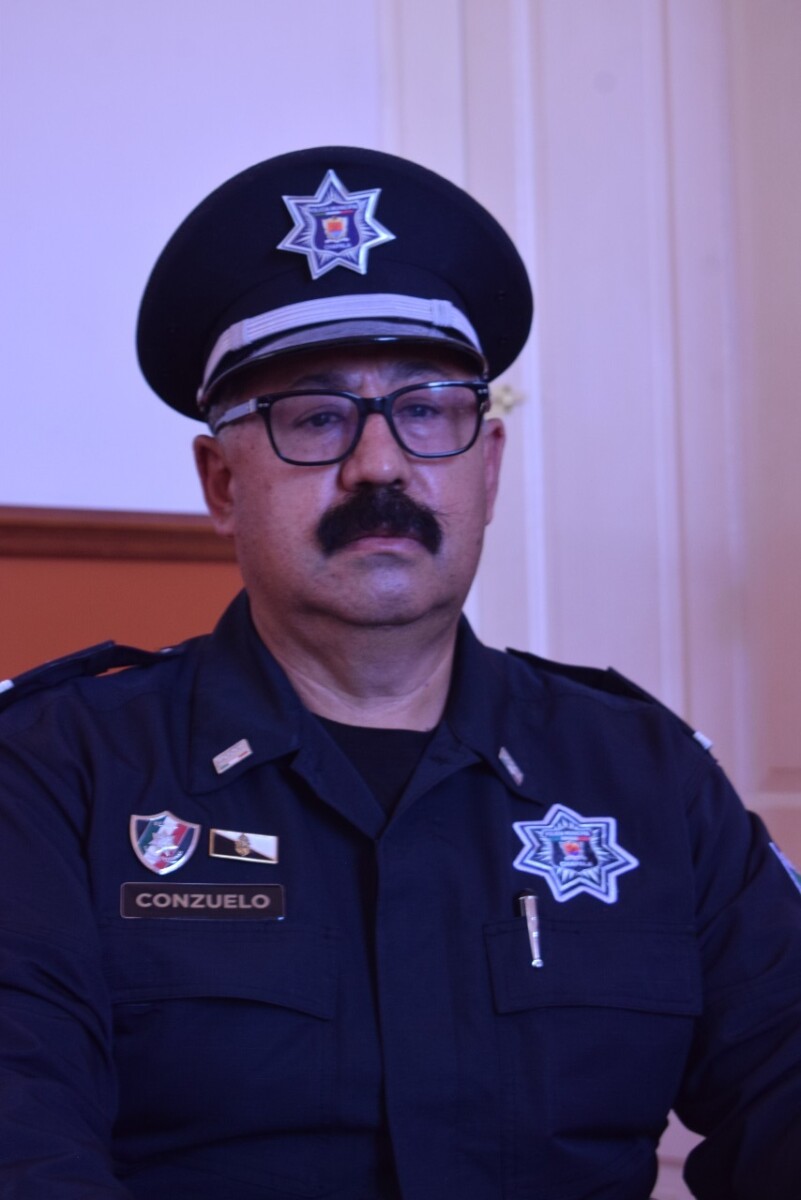
Rehabilitation of green areas in Chapala’s boardwalk. The first two stages are expected to be completed by this year’s Easter holidays.
The Director of Mobility, Moisés Ochoa Urquieta, wants to make Paseo Ramón Corona in Chapala a one-way street during Saints Week. That would force drivers onto González Gallo and Pepe Guízar Avenues, reducing crowds in downtown Chapala.
With six operational units, including two ambulances, Chapala’s Civil Protection and Fire Department will keep a close eye on the most accident-prone road points in the municipality. They will also monitor tourist-favored locations such as parks, boardwalks and forests.
In addition to working with all its staff and volunteers 24 hours a day, the Chapala Port Captaincy joined the supervision of the lakeshore, making available a state vessel. About 70 percent of Civil Protection and Fire Department personnel are emergency medical and rescue technicians.
Finally, Municipal President Alejandro Aguirre says he expects many tourists to generate even more problems with vital public services such as public sanitation, drinking water and garbage collection. Municipal Public Services Coordinator José Antonio Urzua Gracián will ensure that tourists visiting Chapala can take home the best memories of the “Little Corner of Love” as the city slogan goes.
President Aguirre Curiel says he expects two million tourists to visit the Chapala municipality during Holy Week and Easter. That’s why he launched the operation “Alegres Vacaciones en Chapala,” or Happy Holidays in Chapala.
During Holy Week in 2019, the last pre-pandemic year, the Jalisco Secretariat of Tourism Jalisco registered more than 1.3 million visitors on the entire shore of Lake Chapala.
Translated by Mike Rogers
Ajijic free medical dispensary provides people in need with medical help they need
Dispensary of the Ajijic delegation. Photo: Archive.
Sofía Medeles(Ajijic).- A dispensary instituted by the Ajijic delegation has been providing people in need with their necessary medicines, according to Maximiano Macías Arceo, who is in charge of the office.
Macías Arceo explained that it is mainly Health Center patients and the elderly who come for medicines that include analgesics, anti-inflammatories, vitamins, some diabetes medicines, and supplies such as insulin syringes. Macías Arceo said that he collaborates with Health Center staff, who send their patients for medicine if their pharmacy is unable to provide them.
The delegation’s program is operating in cooperation with the NGO Social Networks Project and the Alégrate Foundation to provide controlled medicines for diabetic patients. In addition, a donated wheelchair and crutches can be loaned to anyone who needs them.
The dispensary is still receiving donations of non-expired and non-controlled medicines, which can be dropped off at the delegation across from the Ajijic plaza from 9 am to 3 pm. A medical prescription is required to acquire needed medicines.
Translated by MaryAnne Marble
Stunning Production of These Shining Lives raises the bar at The Bare Stage
The stage at The Bare Stage, a platform for stunning drama.
Patrick O’Heffernan, English Editor.- The audience at last Saturday’s production of These Shining Lives at the Bare Stage Theater in Riberas sat in stunned silence for a few seconds when the play ended and then gave it a standing ovation. The production, which told the story of the “radium girls” who painted watch faces with radium for a company that hid the effects of “miracle chemical” on their health even as they wasted away and filed suits and labor actions that changed worker safety law in the US, was that powerful.
Although These Shining Lives was a “readers theater” in which the actors sit on stools onstage and read from scripts, it was as riveting as a fully staged play. The delivery of the lines, the actors, assumption of the characters, and the careful pacing and direction produced a drama with the impact of a fully staged production.
Director Phyllis Silverman worked for two years on the play, since the last production at the Bare Stage in 2020 before it was closed by Covid. During that time she assembled a cast she recruited reflected the outstanding talent in Lakeside, paired them for a chemistry that seems impossible for a staged reading but which was palpable – especially between Frank Lynch and Linda Goman as a loving husband and wife – and pulled emotions from them that literally filled the open-air theater.
That chemistry between the actors was a throughline in the relationships among the other radium girls – Darlene Sherwood, Louise Ritchie and Giselle Phipps evolved as their characters unfolded their souls and Graham Miller revealed the evil of the corporate soul of the watch factory.
Bare Stage Artistic Director Roseann Wilshere has spectacularly elevated the already good quality of drama at the theater with These Shining Lives, attracting actors and a director and selecting scripts that appeal to the theatrical audience in Lakeside, but push the boundaries and demand more from them than passive consumption.
The upcoming (April 22nd, 23rd & 24th) production of the Norm Foster comedy The Long Weekend, promises to maintain the level attained by These Shining Lives. Wilshere’s judgment in choosing a play by Canada’s most produced playwright, frequently compared to American playwright Neil Simon, not only reflects a continuation of the quality brought to the Bare Stage by These Shining Lives, but is a smart nod to our Canadian neighbors.
Wilshere has assembled a team with solid talent – Kathleen Morris, (last seen in LLT’s production of Silent Sky), Sally Jo Bartlett, Pamela Johnson, Douglas Pinkerton & Ken Yakiwchuk. Tackling a comedy – a very hard medium to work in – after raising Lakeside’s expectations of high quality, will be a challenge. If These Shining Lives is any example, The Bare Stage could just raise the bar again
Alex Sgroi raises $55,00 0 pesos for Ukrainian refugees from his new restaurant, Italia
Alex at Italia. Photo: Jazmin Stengel.
Patrick O’Heffernan and Jazmin Stengel.- Alex Sgroi was seven years old in Switzerland when Hitler invaded Poland and still remembers the sound of the German planes flying overhead; the war did not touch him directly, but he lost friends in the war and he lost contact with many people he knew. As a result, he still carries the need to help with him, which is why when Russia invaded Ukraine, he knew he had to do something.
“I wanted not only to raise money to help the refugees, but to raise awareness of the suffering that the invasion was causing. I saw the atrocities that are happening in Ukraine today as no different than the atrocities of WW2. So I decided to raise money and awareness,” Alex told Semanario in an interview at his new restaurant, Italia.
The plan was simple; ask people to buy a takeout lasagna for $500 pesos and have them pick them up during a week set aside for the fund raising. Before starting, however, he consulted friends with relatives in Ukraine, and local nonprofits and his contacts from being in Rotary and Masons, and their advice helped.
“It was very successful. We raised more than we planned and have already sent the money to the Canadian Red Cross. I chose the Canadian Red Cross because the Canadian government was matching donations until they reached $130millinon CN. Our donation was too late for the match, but it still helped,”, Alex said.
Having spent almost all of his adult life in the restaurant industry, including managing restaurants for major hotel chains in Europe, Alex knows exactly how to most efficiently produce the dinners. He started a few weeks before the designated donation week and he and his staff cooked the lasagnas, packaged them for takeout, and froze them as part of their regular routine. They defrosted them during the donation week and were able to deliver delicious fresh lasagna to donors who arrive at his new location, Italia, in Ajijic.
“This is what I knew how to do,” Alex told Laguna as we gathered around one of the Formica tables in Italia, “Because of my age I could not volunteer to fight – I would be more of a problem than a solution, but this I could do,” He added that if there is a need for restaurant management or cooking, he would volunteer.
The people who bought the dinners were mostly Canadians, he said, followed by Americans and a few Mexicans. He said he has both Expats and Mexicans customers, but because they eat dinner at different times, they rarely are at the restaurant at the same time. But since the campaign was mostly for takeout, it did not matter. What was important was that they donated and they knew of the fight in Ukraine and the suffering of the refugees.
Looking at Life in Lakeside:
By: Patrick O’Heffernan
Yesterday, a fully loaded gravel truck lost its brakes coming down the Libramiento hill into Ajijic. It collided with two cars and ended up on its side. Fortunately no one was hurt, but 3 cars were seriously damaged, traffic was stalled, and the driver barely escaped with his life.
As I drove by the accident, I thought of another lost-my-brakes accident at the end of December in Coahuila on Highway 57 near Saltillo when a tanker truck that lost its brakes killed 5 people and injured 15 before stopping. And the tractor-trailer that lost its brakes and rammed into a house in Chapala last December, killing one person
It is only a matter of time before this happens again in Lakeside with a loss of life. Anyone who drives the Carretera west to Jocotepec can hear the air brakes on the trucks – not their mechanical brakes – because the drivers are afraid that the mechanical brakes may not work. But air brakes don’t apply immediately like mechanical brakes do; they take a few seconds to build up and apply pressure. And if there is a leak in the system or a pump seal fails, there are no brakes.
It takes an 18-wheeler traveling at 40 miles an hour 525 feet to stop if its brakes are in good condition and it is on a level road. In reality, it takes much longer; slow reaction of the driver, slick roads, worn brakes, overloaded trailer, and a downward sloping road all increase this distance by hundreds of feet, or even render the brakes useless
The first line of defense against these tragedies isa brake inspection every 6 months with trucks that fail to be taken off the road until they pass inspection. México does have brake inspections, and the standards for Mexican trucks have been accepted by the US, but many Mexican trucks are operated by local owner-operators or families who work on slim profit margins and cut costs where they can.
The easiest way to save money is not to spend it – on maintenance, like brakes – and skip inspections. So brakes fail. Solving this problem with a Federally-enforced, comprehensive, incorruptible brake inspection and certification program applied to every truck is not realistically in the cards. So, how do we prevent more accidents like Tuesday’s rollover at Walmart?
An easy, inexpensive solution is a runaway truck ramp at the bottom of the Libramiento.
A runaway truck ramp is an exit that comes off of a highway designed to safely stop a speeding truck using gravel, sand, collapsible barriers and sometimes an incline . A properly designed ramp can stop a fully-loaded speeding truck in a few hundred feet, often with little damage to the vehicle.
When the driver of a loaded truck comes down the Libramiento, hits the topes and realizes that the brakes are gone, he or she can swerve the truck into an escape ramp parallel to the Libramiento which will stop it before it reaches the Carretera. Signs warning drivers to test their brakes ahead of the ramp will allow them to use it if they need it.
There is room for a ramp next to the Libramiento before the intersection. The relative cost is relatively minimal – land purchase, grading, sand and gravel, collapsible barriers, a safety wall. And it needs little maintenance. If it saves one life, it is worth it.
Of course there are politics. Neither the Carretera nor the Libramiento are Chapala municipal roads; they are Federal. Getting the Federal agency to deal with the Walmart intersection took years and everyone pretty much agrees they didn’t help much. Getting them to build a runaway truck ramp could take years more, unless there is a spectacular accident and even then, who knows? But solving the problem can start locally; the new Chapala Director of Movilidad – the former Police Chief of Dallas, Texas , who was born here – is a problem solver,
get-it -done kind of guy. Perhaps he can light some fires under the right Federal chairs to prevent another runaway truck smashing into cars or even people on the Libramiento.
Politician seeks subdivision on the beaches of Lake Chapala
Land located next to the San Antonio Tlayacapan boardwalk. Photo: Armando Esquivel.
Armando Esquivel(San Antonio Tlayacapan).- José de Jesús Arambul Solorio, a former PAN candidate for Congress, has been accused of corruption by local citizens for trying to subdivide land in a federal zone on the beaches of Lake Chapala, next to the San Antonio Tlayacapan boardwalk.
Claiming that Arambul Solorio used faked deeds and a corrupt notary, the citizens went to take back the public space on the afternoon of April 1. Arambul Solorio was also present accompanied by his subordinates.
About 50 people gathered on the San Antonio Tlayacapan boardwalk; men, women, children, young and old came to defend what they consider to be public spaces and began removing the metal fence poles. Jesús Arambul’s subordinates wanted to confront the demonstrators, but were told to «leave them alone» and just record the action.

José de Jesús Arambul Solorio is accused of invading a federal zone in order to benefit economically from it. Photo: ITEI Jalisco.
As the activists shouted «raiders» and «invaders» and the crowd of citizens, many of them very angry, joined in to recover the spaces they consider public, the former candidate for local deputy for the National Action Party (PAN) chose to hide inside a trailer on in the property the group claimed he had illegally invaded.
One of the people accompanying the politician claimed that they were acting legally because they had a deed to the land. They said it was not fair for the neighbors to label them as outsiders parachuting “into the community to take public land.
One of Jesús Arambul’s subordinates offered a copy of a deed and tried to argue that it proved the claim to the land was legal. He asked “Who is the leader?” so he could dialogue with someone in charge, but the crowd answered that no one was a leader and that they all acted equally.
The photocopies of the deed presented show that Alvaro Guzmán Merino, notary public 126 of Guadalajara, issued the document, endorsing the purchase and sale of almost 5,104 square meters in front of the lake, with Gerardo Ponce Gómez as the seller and Jesús Arambul as the buyer. Those present said they never heard of Ponce Gómez
The title deed shown has an issue date of February 2021, but the Official Gazette of the State of Jalisco, July 24, 2020 , states that the notary in question could not practice because he was suspended. Additionally, Jesús Arambul’s subordinates did not present previous deeds; instead they argued that the property was owned by the seller since 1994 and that he had a concession from the National Water Commission (CONAGUA). No evidence of a concession was presented.
Jesús Arambul intends to subdivide the property for a luxury housing development and is already putting 11 lots up for sale, asking 6,500 pesos per square meter, legal deeds, supposedly with all the services, at the foot of the lake and with a fenced preserve.
CONAGUA representatives were not in evidence at the demonstration, following their failure to defend the shores of Lake Chapala which they are legally obliged to protect. The municipal government say sthat they have not neglected the issue and have reported invasions to the federal agency.
«They have told us that it is not a municipal issue, however, you are aware that we have entered (the disputed land), we have recovered spaces and we will continue working on the recovery of public spaces. I believe that the participation of the inhabitants is very important», Chapala President Alejandro de Jesús Aguirre Curiel said during an interview with the media, adding that the demonstrators should take care in their actions.
Two municipal police patrols were present on the day of the demonstration, but decided to withdraw before the protest started.
José de Jesús Arambul Solorio ran for local deputy for the XI district in Zapopan, using his political party, Acción Nacional, and lost the race. Arambul also served as coordinator within the Secretariat of Mobility of Jalisco, where he was disciplined for failing to file his asset declaration after leaving office. A politician with a law degree, he owns «Grupo AS Bienes Raíces», which is running ads on the internet offering large lots of land for sale in Chapala.
The fence built on this property was torn down and closure seals had been placed on the property by the authorities, but work has continued. Arambul Solorio promised not to make any moves until the situation is legally resolved, but the neighbors of San Antonio Tlayacapan, who were also accompanied by a group of people from Ajijic, said they do not believe him and fear that political influence could result in luxury houses on the shoreline and the exclusion of citizens to spaces they consider to belong to all.
Translated by Patrick O’Heffernan
Owners reinstall fences removed by ‘anti-fencing’ movement
A Cyclone fence that had been removed and was put up a day after removal. Photo: Sofia Medeles.
Sofía Medeles(Ajijic).- Of the nine cyclone fences removed from federal land by activists, at least five were put back up by the owners of the residences on the shoreline Lake Chapala.
The «anti-rejas» (anti-fences) movement, which removed alleged illegal obstructions at the initiative of the group Pueblos Unidos de la Ribera, has focused on two areas of Ajijic: the beaches known as «Tío Domingo», and the Ajijic shoreline starting on Donato Guerra Street.
Seven fences were removed from the beaches of Tío Domingo, five of which have been reinstalled. In two of these cases, the property owners have planted crops to back up their claimed concession from the government to fence in the shoreline. To date, one of these plots still has agaves planted on it. Two other landowners placed gates at the border of their properties, claiming they were there to stop trespassing.
On the other side of Ajijic, two gates were removed by the Pueblos Unidos de la Ribera group The first one is located at the end of Donato Guerra Street. The property owner threatened to take action against the activists, but the activists were able to completely remove the chain-link fence. The activists also knocked down fence posts during their protest on March 25.
Later that day, close to the Hotel Real de Chapala, they removed a fence that extended approximately 30 meters along the shore of the lake, which had been rebuilt the following day,
Members of the group stated on several occasions that they would take action as many times as necessary against the alleged invaders of the areas that had previously been cleared of fencing.
On Friday, April 8, Pueblos Unidos de la Ribera will gather to remove the invasion next to the Hotel Real.
Translated by Patrick O’Heffernan
27th consecutive carp fishing tournament held in Ajijic
Omar Alonso González, first place, together with the person in charge of San Antonio Tlayacapan, Gustavo Aguayo; Maximiano Macías Arceo from Ajijic; the councilwoman of Ajijic, Denisse Michelle Ibarra González; and the person in charge of COMUDE Ajijic, Alejandro González.
Sofía Medeles (Ajijic).- On March 27, 36 participants competed to catch the biggest carp, as the Carp Fishing Tournament was held on the shores of Lake Chapala for the 27th consecutive year. From 8:00 a.m. to 2:00 p.m., fishermen from towns such as San Antonio Tlayacapan and Chapala gathered on the beaches of Ajijic, in the area known as «La Crucita» near Nicolas Bravo Street.
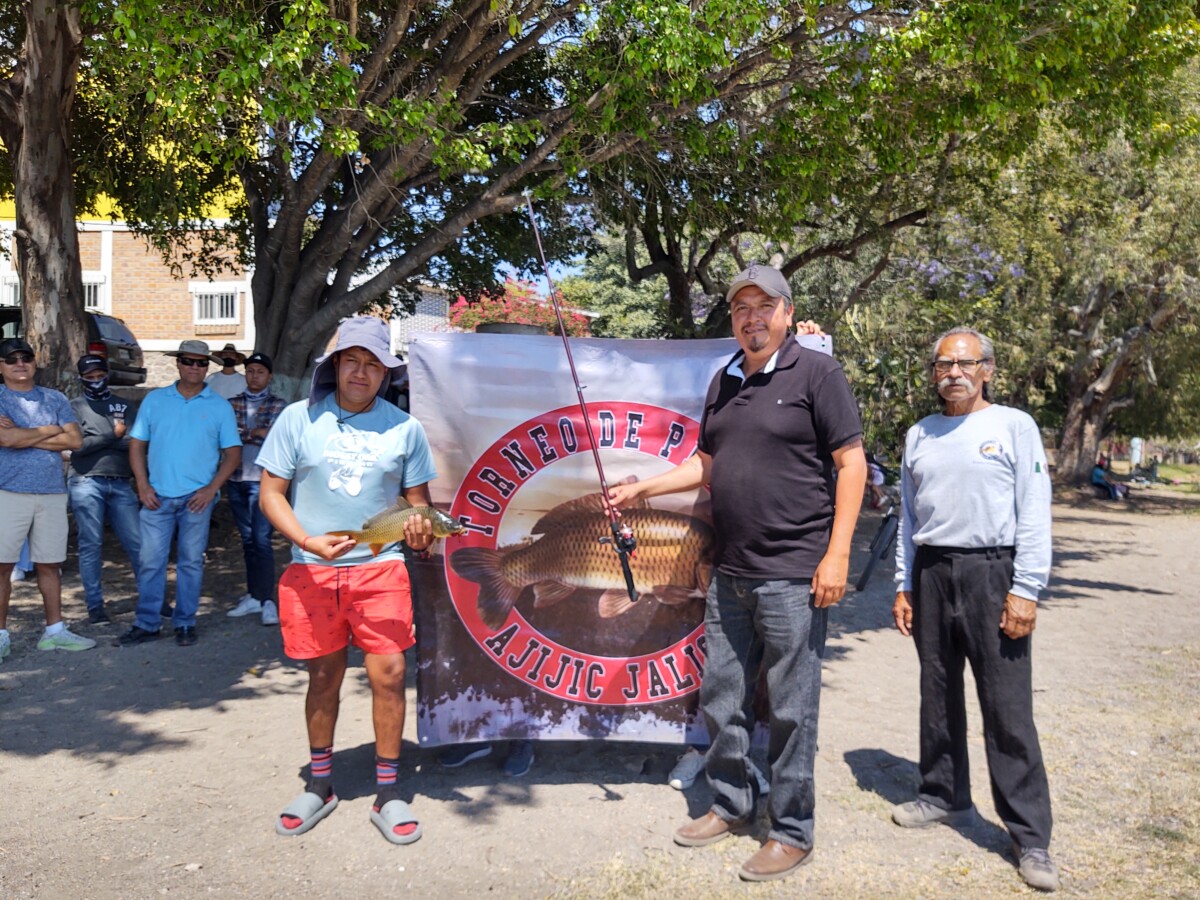
Esteban Barajas Gutiérrez, with Maximiano Macías Arceo and Arturo Gutiérrez.
Event organizer Arturo Gutiérrez, who is in charge of tournament logistics, commented that this competition, unlike other tournaments, is only for carp fishing and has a standard size for the winning fish, which is 35 centimeters (13.7 inches). Prizes are awarded to the three largest fish, which are usually eaten after the event.
«It’s a tradition of the town, I get the prizes, beer for the participants, logos, etc. This event is more than anything else for socializing, it is not a business, I really enjoy being here, for the pleasure of socializing and fishing,» Arturo said.
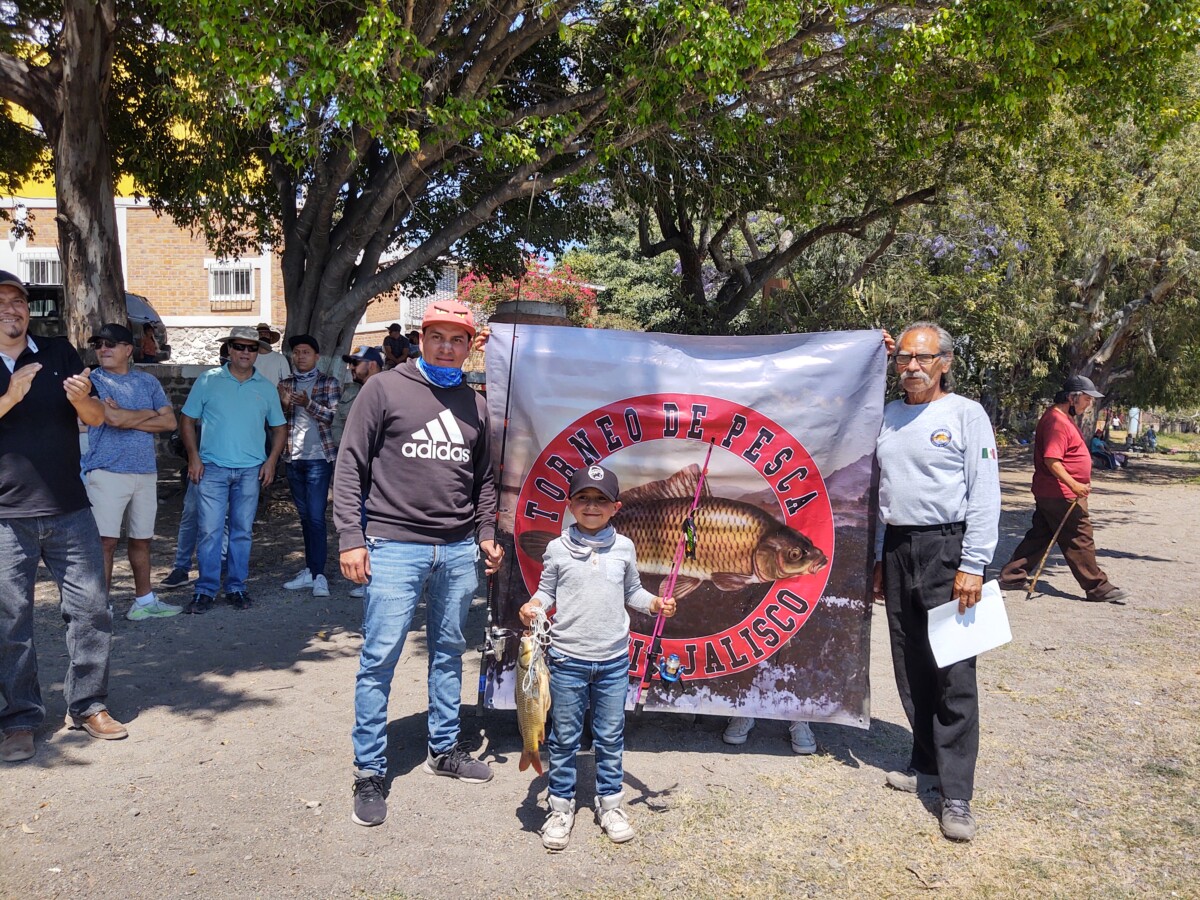
Omar Alonso González with Arturo Gutiérrez.
Arturo also noted that the event passed without incident, except for a few problems with the abandoned nets that are found a few meters from the shore of the lake, that caused the rods to get stuck and damaged.
The winners were: Ricardo Barajas Gutiérrez in first place; Esteban Barajas Gutiérrez in second place; and Omar Alonso González in third place.
Translated by MaryAnne Marble
Ajijic plaza gets touch up before Easter vacation
Painter Antonio López Vega and acting delegate Maximiano Macías Arceo, during the maintenance of the sculpture «Tlaloc». Photo: Sofía Medeles.
Sofia Medeles (Ajijic).- This week work began on the beautification of the main square of Ajijic prior to the Easter vacation when a large influx of visitors is expected.
Acting Delegate Maximiano Macias Arceo confirmed that April tourism season, including the events organized by the group Passion of Christ, such as the Kermes to support the sick of the population, will draw big crowds and the plaza will be ready for them.
«A large tourist presence is expected for these Easter vacations, so we want the main plaza to be in the best possible condition. All will bring visitors from Ajijic as well as tourists.»
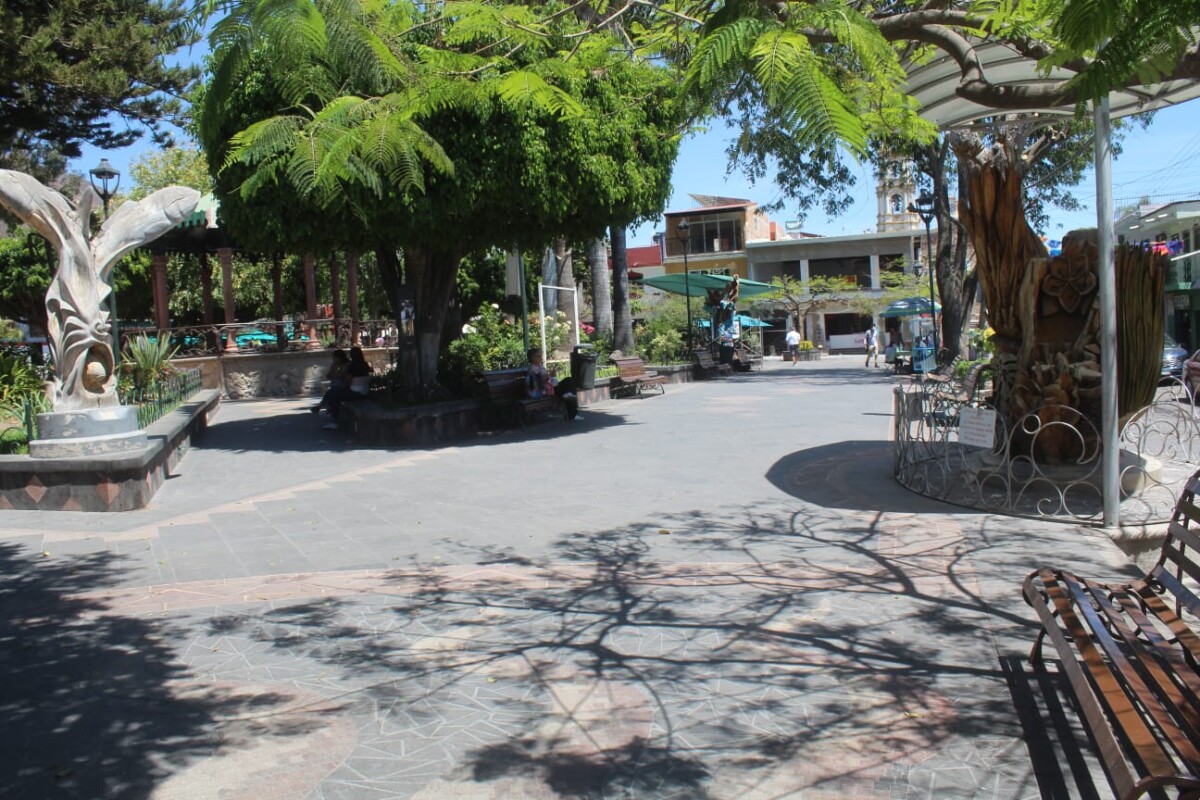
The main plaza of Ajijic is beautified before the April vacations. Photo: Sofia Medeles.
Macías Arceo noted that the work consists of maintenance for the four sculptures in the space, the retouching of the painting of the roof of the kiosk and the cleaning of the terrace and the sides of the planters.
The artists themselves will work on their own sculptures, of which two were created by Antonio López Vega, one by Ricardo González González and one by Estela Hidalgo. The necessary materials will be provided.
López Vega has already started work on his sculptures. One is located in front of the cultural center and the other on Parroquia Street. The painter from Ajijic explains: «The first one, Michi-Cihualli, has been in the plaza for approximately ten years. It was varnished with linseed oil and has gone two years without maintenance. The «Tláloc» is seven years old, and also two years without maintenance. It was originally made of mango root, but the wood rotted and now it is a fiberglass mold; this one will only be painted.»
López Vega invited the public to visit the delegation building on the plaza if they want to support the restoration work with donations.
Translated by Elisabeth Shields
© 2016. Todos los derechos reservados. Semanario de la Ribera de Chapala

